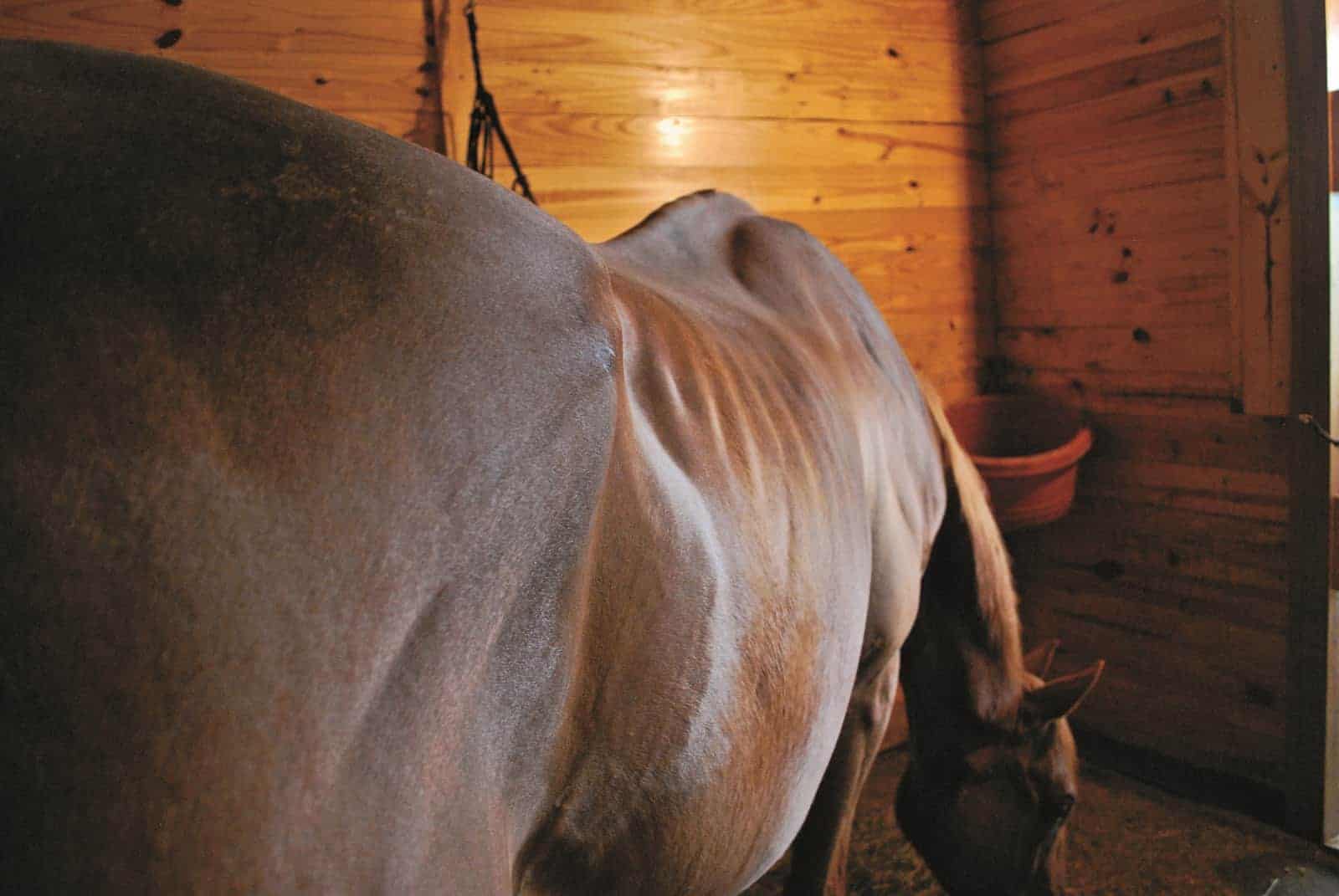Skinny Horse Help

Learn how to determine whether your horse is underweight and what feeding options are available for your hard keeper.
I have been approached many times in the past 15 years by owners of thin horses concerned about their charges. In some cases the owners were worried that well-meaning neighbors or even strangers would report their underweight horses to animal control officers. Many times these were simply owners of older or athletic horses with problems maintaining body weight. In this article we will explore some of the most commonly asked questions about how to manage “skinny” horses.
Is My Horse Too Thin?
Owners and managers should first learn to estimate their horses’ weight and also how to score these animals’ body condition on a scale of 1 to 9 (with 1 being emaciated and 9 obese, as detailed at TheHorse.com/137703 or this video). Because it can be difficult to notice a horse’s weight changes if you are around him daily, Kristen Janicki, MS, PAS, of Mars Horsecare US, in Dalton, Ohio, recommends monitoring both body condition and weight on a weekly basis. Maintaining records can help you determine if a horse’s weight fluctuates regularly, possibly with seasonal changes, or if his weight loss should be a cause for concern. For example, horses in the wild lose weight routinely through the winter months when feed is scarce and then gain weight in spring and summer when forage is more readily available. Some stallions also lose weight during breeding season, especially those that have a large book of mares.
Desired weight and body condition vary with a horse’s “job.” Thus, what is thin for one discipline might be ideal for another. For example, horses competing in racing, eventing, and endurance tend to be thinner than horses competing in dressage, pleasure, or hunter competition
Create a free account with TheHorse.com to view this content.
TheHorse.com is home to thousands of free articles about horse health care. In order to access some of our exclusive free content, you must be signed into TheHorse.com.
Start your free account today!
Already have an account?
and continue reading.
Written by:
Janice L. Holland, PhD
Related Articles
Stay on top of the most recent Horse Health news with















